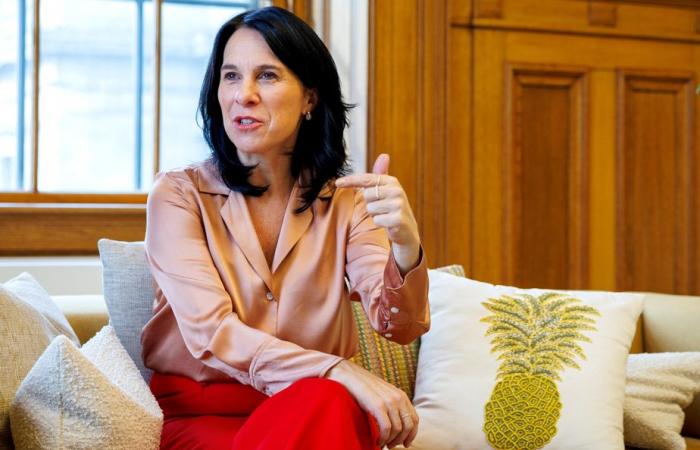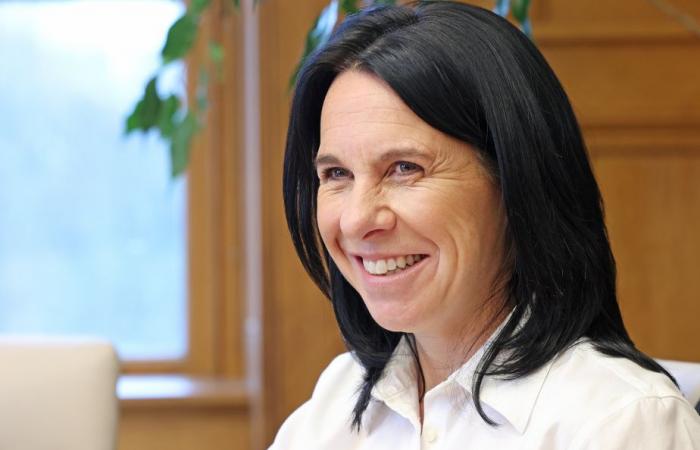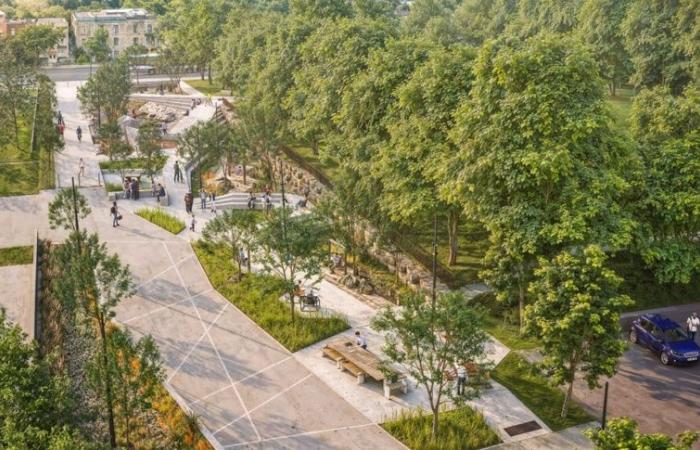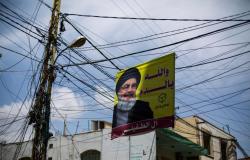Six months from the end of her mandate – and despite major disappointments in terms of public transport -, Mayor Valérie Plante makes the most important legacy will be that of the environment. However, she implores her successor not to “backtime Montreal” by losing sight of the climate challenge.
Posted at 5:00 a.m.
“When there is a crisis, especially one that touches our identity as at the moment, it leads us to go to the most pressing. That said, it will be the role of the next administration to recall that the climate crisis will not stop, and that time is counted, “said Mr.me Interview plant with The press.
The mayor launches this warning at the dawn of the opening this Tuesday of the fourth climate Montreal summit, which her administration created in 2022. Several commitments are made there every year. In 2023, the city had committed to making Old Montreal the “Pedestrian Kingdom”. It is also due to a promise made as part of this summit that new constructions have to be “zero emission” since the beginning of 2025.
Mme Plant is especially pleased to have tripled, in eight years at the head of the metropolis, the number of land acquired for ecological protection purposes.
All the occasions we had, we seized them. And today, we are really elsewhere, with the equivalent of 352 protected soccer courts, against a hundred during the mandate before me.
Valérie Plante, mayor of Montreal
“People will often tell me about cycle paths, but in reality, my assessment in terms of fighting climate change, it is much more important […]. My most important legacy, as mayor, is the environment, ”insists the elected official.
The latter already launches a warning to his successor. “An administration which would decide to retreat to our skills in decarbonation, active transport, greening or protection of biodiversity for electoral purposes […], [elle ferait] back up Montreal. And [elle aurait] accounts to be rendered. »»
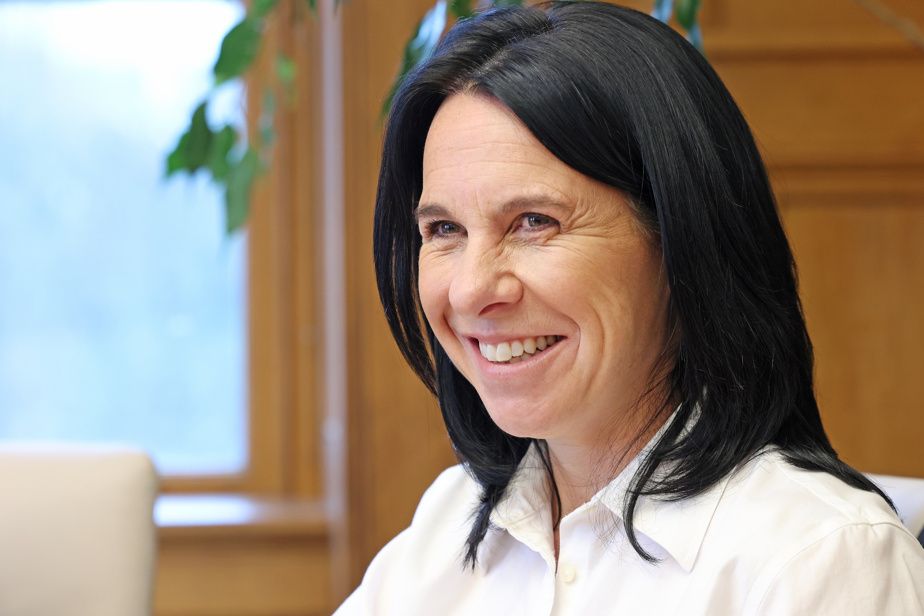
Photo Robert Skinner, Archives La Presse
Valérie Plante, last November
11,000 charging stations in 2030
In the short term, the Plante administration will announce this Tuesday a new objective: to offer 11,000 electric charging stations for vehicles in the agglomeration territory by 2030. Currently, there are around 3,300 of these public access points; Montreal therefore wants to triple their number in five years.
To achieve this, the City wants to install more municipal terminals, without having to wait for funding from Quebec, but also set up a program to assist companies wishing to electrify their vehicle fleet.
If the objective is achieved, it will in some way be a consolation price forme Plant. The “mayor of mobility” does not hide having been “disappointed” in the development of public transport in recent years, especially since the recent abandonment of the tram project between Lachine and the city center.
It is certain that it is disappointing, because it is always the impression that it is necessary to undress Janette to dress Ginette. The sadness in there is that the number of cars has increased in the metropolitan region. But you shouldn’t let go.
Valérie Plante, mayor of Montreal
She says she see “positive signs” with the arrival of the Mobilité infra québec agency, supposed to reduce the costs and deadlines for projects.
The city will also announce this Tuesday the establishment of a principle of “zero net artificialization” by 2030. This principle having emerged in 2018 in France consists in balancing the proportion of the artificial surface of a city – in other words the surface which is developed – and its compensation in protected environments.
In Montreal, around 38 % of the areas are vegetable and permeable, while 62 % of them are mineral and waterproof. The adoption of this principle therefore suggests that the city wishes to preserve this ratio.
More eco -responsible parking lots
Also expected at the climate summit, the Minister of the Environment, Benoit Charette, will announce this Tuesday that the government pays 25.4 million to 12 municipal organizations for ecological projects.
It is Montreal, which will affect the essentials, 21.9 million, to “accelerate the development of eco -responsible parking lots and green infrastructure for rainwater management”. Quebec says that he wants to help the metropolis to fight against the impacts of heat waves and torrential rains.
One of the financed projects will be on the grip of the old rue Larivière, in the district of Ville-Marie, which must become a linear park, punctuated by half a dozen retention basins, by making the first “eponge” street in the metropolis.
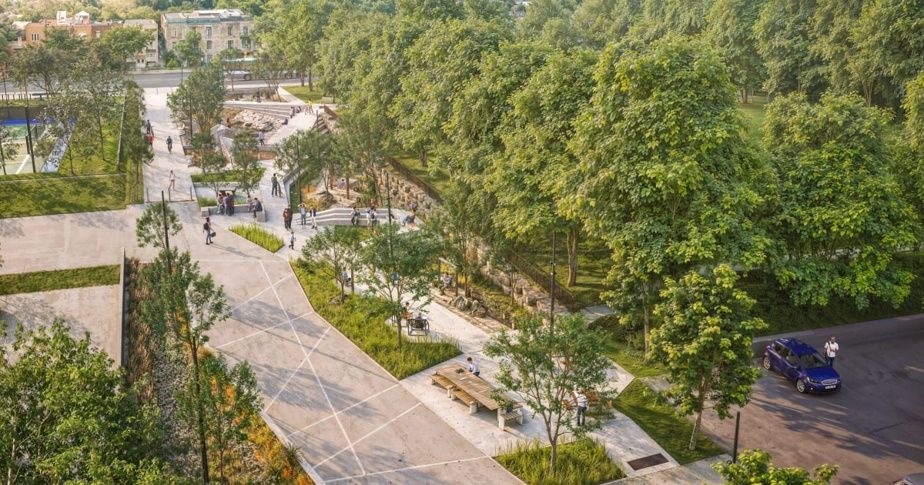
Image taken from the City of Montreal website
The project on the street “sponge” Larivière
Other actors will also take advantage of the climate summit to reveal ecological advances. Among them, Concordia University will notably announce the conclusion of an agreement with Hydro-Québec and Energy aimed at setting up a new sustainable energy network at the Loyola campus, in the west of the metropolis.
The objective would be to add a new thermal power station and to integrate technologies such as geothermal energy, photovoltaic energy, thermal and chemical storage as well as renewable natural gas, in order to provide heating and air conditioning to around thirty buildings.

